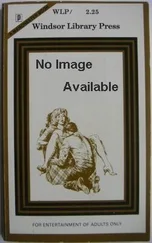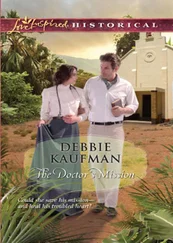
* * *
I can honestly and truly say I disliked the book J. Ceaser by W. Shak. It has its good points but some how or another they didn't appeal to me. I suggest for J. Ceaser to have more humor to it, it's too sad.
Disatisfied-with-Shak. Student
* * *
Miss P—ld and, Miss B-tt are in love with B-b and J-e and Miss F—ch with Mr. B—er and Alice B. also, she had his b-by, that's why.
Guess Who
* * *
You really made me get to the bottom of Julius Caesar.
Stander
* * *
We're behind you 95%. Don't worry.
* * *
How come Dr. Bester is so nice and different in class than in his office, he's a good teacher but you'd never know it looking at him?
Lazy Mary
* * *
They shouldn't allow bad morals in the Book Room.
Unsigned
* * *
You are the most understanding person I ever knew and the best English teacher I ever had, and that includes other subjects. This comes from the heart and not the mouth.
Carole Blanca
* * *
Teachers are ruining America.
Zero
41. Do You Plan to Indulge in a Turkey?
Sat, Nov. 21
Dear Ellen,
Yesterday was a day to remember. A day that ran a gamut. A day that provided what's known in Pedagese as "a spectrum of experiences." In the morning I found myself in the midst of a cafeteria riot which I had, somehow, instigated; in the evening I was dancing in the gym with the same boys who had been rioting a few hours earlier.
It began in my English class. Some of the kids had come to English straight from lunch, and I overheard them complaining about conditions in the school cafeteria. Since we were working on a letter-writing unit, I suggested that they compose a letter to the Board of Education, describing existing conditions and demanding better facilities. We had a preliminary discussion, and I realized that I had lifted the lid off long smoldering resentments: "We have to swallow lunch in 20 minute shifts . . ." "We have to eat standing up . . ." "Can't move . . . can't smoke . . . can't talk—only whisper . . . lousy food. . . . They treat us like cattle . . ."
The next period—my unassigned—I passed through the Students' Cafeteria on my way to the Teachers' Lunchroom next door for some coffee. The Aide assigned to the cafeteria was not on duty. It was jammed with kids, half of them standing; it was stuffy, noisy, messy with soiled trays on wooden tables, paper bags, milk containers, coke bottles, candy wrappers. Under a "No Talking" sign, leaning insolently against the wall, was Joe Ferone.
"You slumming?" he said.
"You could use some extra chairs," I said inanely.
"Plenty of chairs in the Teachers' Lunchroom," he said. It was true. At that time of day, there were never more than a few teachers there. "We're supposed to be as good as you? Can we bring some of your chairs here?"
"Of course," I said. "Just be sure to return them at the end of the period. Why don't you and a few of the boys—"
Before I could finish, there was a stampede to the Teachers' Lunchroom: boys shoving, pushing, shouting, dragging chairs, waving chairs over their heads, fighting for seats, yelling . . .
Suddenly—a shrill whistle: the Admiral himself.
"Silence! I want absolute silence!" He is furious. "There is to be no talking here of any kind. Anyone opens his mouth, you're in real trouble. I don't want to hear a word out of you!"
They obey. All talking stops. Not a word is spoken. Then, slowly, methodically, in ominous and terrible wordlessness, they all rise, as if at a signal, and begin smashing dishes, breaking bottles, throwing books, trays, papers on the floor, flinging food against the walls; still silent, they march around the room, weaving in and out and around the tables, a mob, mute and inexorable; the only sound is the stamping of feet, crunching of glass, breaking, cracking, splintering—punctuated by McHabe's helpless whistle.
It was an extraordinary and terrifying sight. Who called the cops, where they came from so quickly, I don't know—but the moment they appeared, the mob turned into kids, weaving back to their places in the same grim silence, and waiting with vacant faces among the debris.
It was like something rehearsed, performed, and finished; so that when the bell rang, they left as if nothing out of the ordinary had happened.
"I'm afraid it was my fault, Mr. McHabe," I began.
"You're damn right it was your fault. I warned you. I told you what would happen if you run this school with ideas. You didn't believe me. Maybe now you will."
Then notes, circulars, directives began to fly fast and furious: "punitive action . . ." "firm measures . . ." "name of each student who was in the lunchroom . . ." "disgraceful exhibition of . . ." "to forestall future incidents . . ." until the inevitable "It has come to my attention."
And all through this avalanche, Ferone's mocking eyes seemed to follow me.
I tried to find out why conditions in the cafeteria could not be improved; the kids' complaints were certainly justified. Or why couldn't they eat out? Back to my source I went: the kids themselves. I'm enclosing some of their answers:
One term they alloud us in the lunchenette across the street and the drug store on the corner. But we were too much of a public nuisense and caused a disturbance to the peace of the other eaters. So they disalloud it.
If we get in an accident during school hours it's illegal. Supposing a car hits us while going to lunch? Last year the school got sued because this boy was sent with a pass from a teacher to buy her some aspirin & got runned over. Now we all must suffer for it.
It's expensive to eat out of school. Still, they should let us. After all we're human too. So what if we knock a salt seller over or spill something by pushing each other or have a loud conversation in a restarant? Does that make us Juvenile Delinquents or sex manics?
Excuses and excuses and reasons and reasons is all they give us but I don't buy it.
They tried to add on 10 extra minutes for each eating shift to make it a real 1/2 hr lunch, but these minutes they had to cut out off other periods and the teachers said they couldn't afford to lose the 2 minutes off teaching time especially in Home Room.
One idea was brought out that when we brought lunch from home to have us eat it in the auditorium. But if we wanted to conclude our meal by bying milk or ice cream we couldn't do it. Also the auditorium usually shouldn't be as messy as a cafeteria. They would have to get an extra teacher to watch that we didn't get too messy.
What's the use of finding more chairs to eat when there aren't enough tables?
I'm beginning to see some of the problems McHabe has to face.
As a disciplinary measure, he wanted to call off the Thanksgiving Dance scheduled that evening in the gym, but the tickets had been bought, the school orchestra had been rehearsed, the punch had been prepared, and he was made to see that punishing many for the misdeeds of a few was not only undemocratic, but was likely to lead to another "unwarranted outburst" on the part of the kids.
That afternoon I found on my desk a melting chocolate turkey and a card:
"A Happy Thanksgiving and many more
From the whole Room of 304."
And that evening, at the dance (I was one of the chaperones) I could hardly recognize in the scrubbed, combed, brushed, dressed up and oh, so polite kids the same ones who had left the cafeteria a shambles.
Читать дальше











